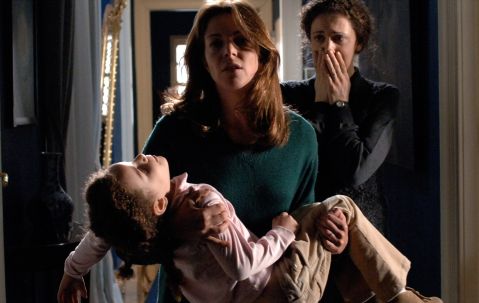The Unknown Woman.
Kseniya Rappoport, Michele Placido, and Claudia Gerini star in a film written and directed by Giuseppe Tornatore.

Santa Barbaran filmgoers may recall that the Italian film The Unknown Woman closed this year’s Santa Barbara International Film Festival, and also that it was one of the least frothy, dessert-like closers in the festival’s history. That fact surprised some who knew about the film’s director, Giuseppe Tornatore, whose best-known and loved film is 1988’s Cinema Paradiso, a thoroughly sweet paean to the enchanting power of cinema and childhood. If Cinema Paradiso taps into the nostalgically lyrical side of Fellini, The Unknown Woman goes to an entirely different place – the evil and kinky cultural neighborhood of Hitchcock and beyond.
Aided immeasurably by great composer Ennio Morricone‘s effectively creepy, insinuating score – not to mention the hypnotic power of the well-placed flashback – Tornatore tells the slowly unfolding story of a young woman, an immigrant from the Ukraine to Italy, with a troubled past. We keep catching teasing glimpses of that past, involving sexual coercion and dark criminal voodoo, as she tries to insure her safety in a new land, and confides in a woman she has silenced. Cleverly constructed and vividly visual, the film is plotted like an exercise in brewing tension and is dotted with some spine-tingling moments.
Ultimately, though, Tornatore’s film plays too much like an experiment without the proper artistic passion or commitment, as if he’s too wrapped-up in Hitchcock-ian homage and the mechanics of the genre to get to a genuinely expressive place that might make this film anything more than a footnote. In other words, his reputation as an auteur-istic sweetheart continues.



